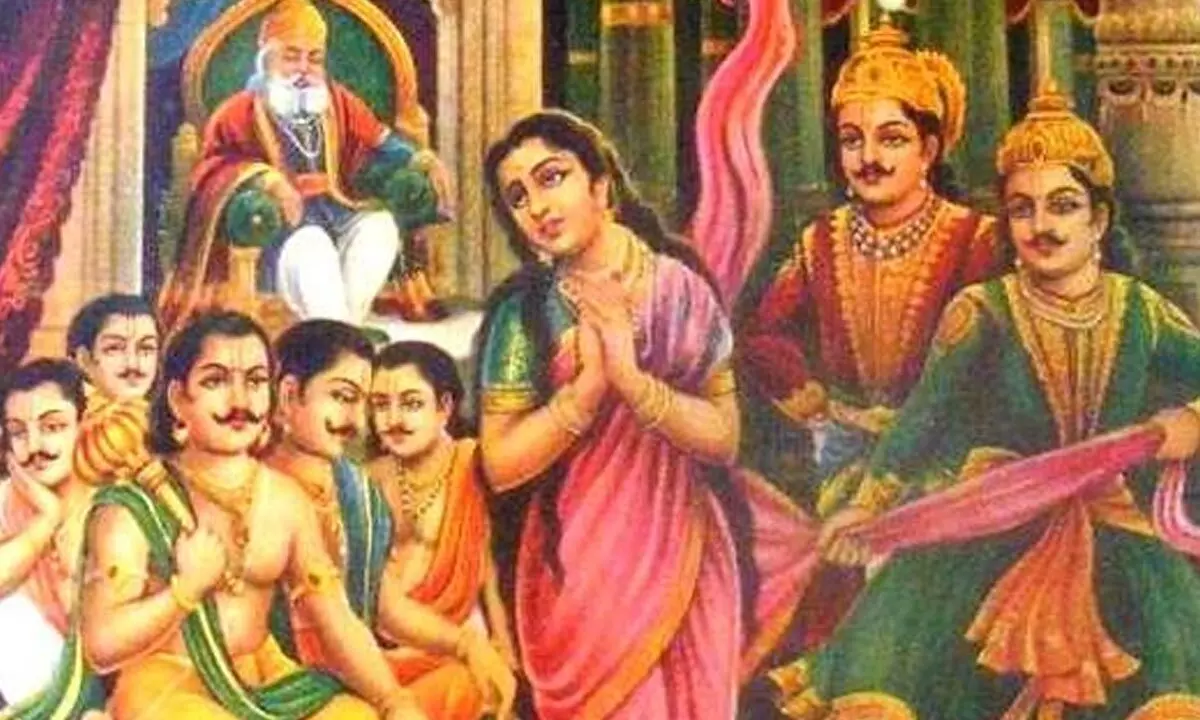Citizens’ Dharma

There is a warning given to the intellectuals by Krishna in the Mahabharata.
We hear much about the dharma of a king, dharma of people in different sections of society, dharma of a husband, dharma of a wife and so on. It rarely comes to our mind that there is a dharma of a citizen too. Bhishma, the grandsire, tells Yudhishtira in The Mahabharata (Shanti parva, 57-41) about the duties of a citizen. He says, ‘Choose the king first and then choose a wife and money. Where is safety for the wife or wealth if there were no good king?’ Here, we need not doubt whether there was any role for people in the times of kings and emperors. In the Indian tradition we see that there was some role for the people and their representatives even in choosing a king. We read that Dasaratha invited a meeting of all representatives on the eve of anointing Rama as his heir apparent. One of Dasaratha’s great grandfathers had banished his own son on public complaints about his unruly behavior.
‘The king has a duty to be equal to all sections, without any discrimination or favor’ (ibid. 59-104)’. ‘Just as a pregnant woman avoids her choice food if it is harmful for the child, so should the king restrain his desires for the welfare of people (ibid. 56-44)’. There is the dharma of a ruler and the dharma of a citizen.
We are not sure whether we, the people, can intelligently do our dharma in choosing a good ruler. A good leader is neither good to me nor good to you but one who is equal and judicious to all. But we are allured by gifts from diverse groups. We are divided among so many lines. The state did not try to bring about unity among the citizens. There is a preferential treatment to some and adverse discrimination for others, and we are bombarded by narratives, true and false, to influence us. We accept or reject depending on our own predispositions. A slightly educated or motivated person may follow a narrative because it suits his tribe. Artificial intelligence has complicated the task of testing these narratives. It deludes even the intelligent person. An average villager, or a worker is not aware of these narratives. Most often, he is guided by the allurements.
The British ruled us, because they noted that Indians would be loyal to their master, whether the master was good or bad, but who gave them their livelihood. This happens with our voter who is lured by gifts. All the rival groups come with heaven in their palm and the gullible voter is like a maiden getting cheated. Our dharma ends with choosing a leader, not knowing who he is, what his agenda is and whether we would be safe under his rule. We elect someone and have a limited role thereafter. Someone gave us a chocolate and took away our gold and we remained as children sucking our thumbs, waiting for the person who promised to give us a fortune.
This implies that we have to have discernment and adequate knowledge. Educating the voter is normally the task of the intelligentsia, but here is another problem. Can we find non-aligned intellectuals anywhere? The hard fact is that no country in the world is truly independent. Several inimical external bodies act on it, as they have their own interests to exploit a country. They would like to have their own pets or clients as rulers. The best way is to buy the intelligentsia and use them to build narratives and do their bidding. It is a disgrace to see that several academics in the star universities of the west are on the payroll of their enemy countries. Can we expect something different in the Indian context?
There is a warning given to the intellectuals by Krishna in the Mahabharata. When he went as a messenger to the court of Duryodhana, he pointed out the failure of Bhishma and Drona who had the ability to check Duryodhana and stop the outrage on Draupadi, but who kept quiet. Krishna said, ‘even those who support injustice will perish. They will be washed away when dharma is restored, just as trees on the banks of a river are washed away by the flood’.
(The writer is a former DGP, Andhra Pradesh)










